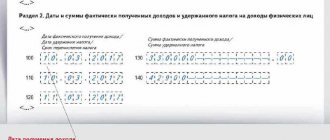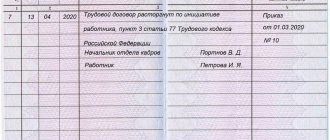Home / Labor Law / Vacation
Back
Published: 06/03/2016
Reading time: 8 min
0
2308
For certain categories of working citizens, labor legislation provides for payment (compensation) for travel to a resort or other place for recreation . These funds are paid from the budget of the organization or enterprise, that is, they are awarded to the employee by his employers.
The possibility of such compensation is laid down in labor relations by Article 325 of federal legislation (law number 197, adopted in December 2001). The same is stated in the Law of the Russian Federation under number 4520-1 of December 31, 2014 (Article 33).
- Who is entitled to payment?
- Who cannot qualify for payment?
- Documenting
- Payout Features
- Personal vehicles
What travel expenses are reimbursed to employees?
In Russia, according to the law, there are several types of compensation to employees for expenses incurred in the performance of their official duties. Article 165 of the Labor Code of the Russian Federation explains in what cases the expenses for travel of employees to and from work are compensated, and contains an exhaustive list of compensation payments, among which transportation costs are separately highlighted.
What compensation is provided for transportation costs:
- reimbursement of expenses for operating an employee’s personal car;
- compensation for travel to and from work, including by public transport and taxi;
- payment of travel expenses in terms of purchasing tickets (air, railway, land, water and other types of transport);
- payment for tickets to and from the employee’s place of rest;
- reimbursement of travel expenses to the place of work when moving to another area.
There are no restrictions on amounts for each type of compensatory additional payments, and employers independently set standards for employees. These norms should not contradict the current provisions of labor legislation and are fixed by local orders for the organization.
We will analyze the features of providing each type of compensation payments and the procedure for how to apply for compensation for travel to and from work correctly.
Documentation of compensation payments
Reimbursement of transportation and other expenses incurred in connection with the performance of work duties is made based on the employee’s application. The document is drawn up in free form on a standard A4 sheet and contains the following information:
- to whom: surname, initials, position;
- from whom: surname, initials, position;
- purpose and date of travel;
- destination: region, city, address of stay;
- amount of expenses.
The application is supported by documents confirming the fact of expenses.
How to confirm expenses
The following are attached to the application:
- travel tickets to and from your destination, including on-site transportation costs;
- certificates from railway stations (confirms the absence of a train if the employee has chosen air travel);
- boarding passes;
- hotel checks.
In general, during business trips it is necessary to scrupulously collect all checks and receipts, even tram tickets.
If tickets are purchased online
This is a fairly common service offered by many transport companies. The fact of electronic purchase of tickets or booking hotel rooms is confirmed by a printout from the “Personal Account” of the payment system through which the funds were transferred.
Reimbursement of expenses for the use of a personal car
The procedure and amount of such compensation is usually agreed upon in advance and fixed by the terms of the employment contract. Therefore, to reimburse expenses, you usually only need a travel order signed by the manager and receipts from gas stations.
How to confirm shipping costs
To reimburse the costs incurred in full, the following package of documents is collected:
- a copy of the agreement on the procedure for using a personal car for the needs of the enterprise;
- a copy of the vehicle registration certificate;
- primary documentation: travel and route sheets, memos and other papers;
- actual expenses: receipts from paid parking, gas receipts, payment for repairs and maintenance.
Compensation for personal transport
Employees often use personal vehicles to perform official duties: transporting goods, delivering reports, distributing goods. But the fact that the employee arrived at the office in his own car in the morning does not constitute grounds for assigning compensation.
The conditions for calculating and paying compensation for the use of a personal car must be discussed with your superiors and the agreements must be formalized in a special document - a contract or agreement on the use of a subordinate’s personal transport. Without a contract, you cannot claim compensation payments.
How much compensation for travel expenses to the place of work and back is a matter of agreement (Article 188 of the Labor Code of the Russian Federation). There are no maximum or minimum restrictions by law; the employer and his subordinate have the opportunity to agree on almost any amount of compensation payment.
The employer should be aware of tax risks in terms of compensation for transportation costs. In the current version of the Tax Code of the Russian Federation, the costs of operating an employee’s personal transport are taken into account as part of other expenses within the approved standards (subclause 11, clause 1, article 264 of the Tax Code, clause 1 of Resolution No. 92 of 02/08/2002, Letter of the Ministry of Finance No. 03-03- 06/1/465 dated 08/09/2011). This means that only the compensation standard can be legally ignored by the organization when paying income tax, and everything above will increase its tax base. Therefore, in most organizations, reimbursement for travel to the place of work by personal car does not exceed this standard established by law.
Examples of amounts:
- for a passenger car with an engine capacity of 2000 cm³ or less, the amount of compensation should not exceed 1200 rubles per month;
- if the engine volume is more than 2000 cm³, then compensation is due up to 1500 rubles per month;
- for a motorcycle, only 600 rubles are reimbursed. per month, regardless of the brand of motorcycle.
Payment for tickets to and from your holiday destination
Workers in the Far North and equivalent areas are provided with compensation for travel to and from their holiday destination. This norm is enshrined in Art. 325 of the Labor Code of the Russian Federation and is provided once every two years.
Travel expenses are reimbursed not only for the employee himself, but also for his family members, but only for vacations in Russia. There will be no compensation for travel abroad, and they will not reimburse the actual costs, but only the amount calculated based on the lowest cost of travel, and the shortest route (there is a special calculation method).
Not only northerners, but also contract military personnel receive payment for the road to their vacation spot. Commercial organizations that are not required by law to reimburse employees for travel expenses are not prohibited from doing so on their own initiative.
Features of paying for discounted travel
On vacation, the cost of travel in both directions when traveling by transport is compensated:
- in a compartment carriage of a train (railroad);
- on an airliner;
- automobile (not counting taxi);
- water (in cabins of the 3rd category of river vessels, on sea vessels - in cabins of 5-8 tariff groups).
Luggage fees (up to 30 kg per person) are also subject to compensation.
When traveling by personal vehicle, expenses calculated based on the lowest cost of the shortest route to the final destination of the route are compensated. In this situation, the employee must submit to the accounting department of the enterprise documents confirming his stay outside the northern territories of the Russian Federation during the period under review.
Travel expenses for the vacation of the employee himself and his family members are financed from various sources. Costs for the employee are included in the cost of the organization's products (RF PP No. 661, 07/01/1995), and payments for his family members are made from the portion of the profit remaining at the disposal of the enterprise. Therefore, if the organization has no profit, payment for travel expenses incurred by the employee’s family members cannot be made.
Reimbursement for transportation costs is issued to the employee before leaving on vacation based on preliminary transportation costs, and the final payment is made based on the provided travel documents upon the employee’s (his family members) return home.
If an employee visited several settlements on the territory of the Russian Federation during the specified period, expenses are reimbursed only to one of the points (at the employee’s choice), and the return trip is reimbursed along the shortest route from the selected point.
When traveling to other countries, travel to the border of the Russian Federation and back from the border to home is paid.
The settlement point is the customs office at the exit and entry from the country (checkpoint or airport). If the nearest airport itself is located outside the northern territory, then both the employee and his family members will get to it with full travel compensation.
If an employee does not use his right to rest, then upon dismissal he is entitled to monetary compensation.
Important! Transport reimbursement benefits do not apply to rotational workers not residing in the Northern Territory.
When the right to compensation is lost
When the end of the 2-year period for the right to use the benefit approaches (1-2 months in advance), the enterprise administration notifies the employee in writing about this.
According to Decree of the Government of the Russian Federation No. 455, the opportunity to receive compensation is lost if it is not used within the allotted period. Transferring rest days or benefits to pay for transportation costs is not permitted.
Important! Employees who are not working due to childcare and pregnant employees cannot use this right. An exception will be the situation when an employee interrupts care leave and writes an application for annual leave. Then, when traveling outside the North, the cost of travel costs both ways will be compensated by the employer.
Paying for travel on a business trip
When traveling to another location, compensation for travel to and from work is required, along with payment for accommodation and daily allowance. The basis for payment will be a business trip order, official assignment and other documents confirming expenses (checks, receipts).
Compensation for travel to the place of work during a business trip has no legal restrictions. The employer is obliged to reimburse all costs after the fact, but he has the right to set individual requirements regarding the rational and economical use of the company's budget: prohibit employees from using taxis instead of public transport to travel to the place of business or purchasing luxury, business, or first class tickets. Such restrictions are common in the public sector.
Upon return, the posted worker confirms the expenses incurred with documents, providing checks, receipts, tickets, statements and other payment documents confirming the fact of payment for the carrier’s services. Commissions, insurance and other additional payments collected by transport companies when selling tickets are also compensated.
Refusal to reimburse travel for vacation
An employer may refuse to compensate an employee for travel on vacation if, for example, the employee does not have the right to compensation for travel on vacation, if he has not provided documents confirming travel expenses, etc.
However, denial of compensation may be unlawful. In this case, it is necessary to try to find out the reasons for the employer’s refusal to provide compensation. If you cannot resolve this issue with the employer, then you can contact the labor inspectorate or the prosecutor’s office to conduct an investigation into the legality of the employer’s refusal to compensate for travel.
If you are sure that you are entitled to compensation and you have all the necessary documents, the results of your appeal to the labor inspectorate and the prosecutor’s office did not lead to action on the part of the employer, then you can go to court with a claim and recover the due compensation in court.
Our labor dispute lawyer at the Law Office “Katsailidi and Partners” in Yekaterinburg will help in protecting your rights as an employee. Call us right now!
Paying for travel on public transport
Some employers reimburse their employees not only for travel and vacation expenses on tickets, but also for daily trips by public transport to their place of work, when the place of work is outside the city or remote from the residential sector. Some organize transportation, while others pay for travel.
Payment for travel to the place of work in public transport is established on an individual basis. The law does not tell us anything on this topic; the norms and amounts are the prerogative of a particular employer.
Payments of compensation for travel (except for business trips) should be classified as payments in terms of remuneration for labor. This means that the employer will have to calculate and pay insurance premiums. This opinion was expressed by officials in Letters of the Ministry of Finance dated March 13, 2018 No. 03-15-06/15287 (clause 1) and the Federal Tax Service dated October 30, 2017 No. GD-4-11/ [email protected]
Payment amounts
The law has not established specific amounts of compensation payments. Amounts are determined on an individual basis.
The amounts of payments are fixed by orders, regulations or resolutions in the organization. Without this they are impossible.
The norms for compensation for travel are prescribed:
- in the employment contract with the employee;
- in the vehicle operating agreement;
- in a collective agreement;
- in certain regulations and standards, for example, in the regulations on the posting of an employee.
How to write an application for reimbursement of travel expenses
To receive compensation, the employee writes a statement justifying the need for payment. Supporting documents (receipts from gas stations, tickets, statements, etc.) are attached to the application. When traveling on business, money is issued in advance, and supporting documents should be attached to the advance report.
Typically, an application for travel compensation is made in writing. There is no unified form. Write your full name in the header of the document. and the position of the manager, indicate the name of the organization. Then your own full name, position in the company.
In the text of the application, describe in detail the circumstances that are the basis for payment: with dates, references to regulations or legislative acts. Sign the application, indicate the date of preparation and submit it to the accounting department for review.
Application for reimbursement of transportation costs
About the author of the article
Natalya Evdokimova Accountant-expert, practical experience - more than 15 years.
Author of articles in online media on accounting, taxes, and personnel issues.
Cashback for trips around Russia in 2020
In addition to state guarantees and compensation for people working and living in the Far North and equivalent areas, this year the Government announced a program to support domestic tourism , for which 15 billion rubles have been allocated from the reserve fund.
The funds should be used for a partial refund for the purchase of tours around the country. All citizens of the Russian Federation, as well as members of their families who have registered the “Mir” card in the loyalty program, can become participants in the program. The cashback amount varies from 5,000 to 15,000 rubles, depending on the cost of the purchased tour. The program started in August and runs until December 20, 2021.
It is not yet clear whether the use of cashback will have any impact on compensation paid by employers. Most likely - no, because... the employer does not have the right to demand any additional documents from the employee, except those that confirm the right to receive compensation.











